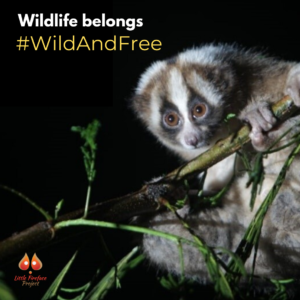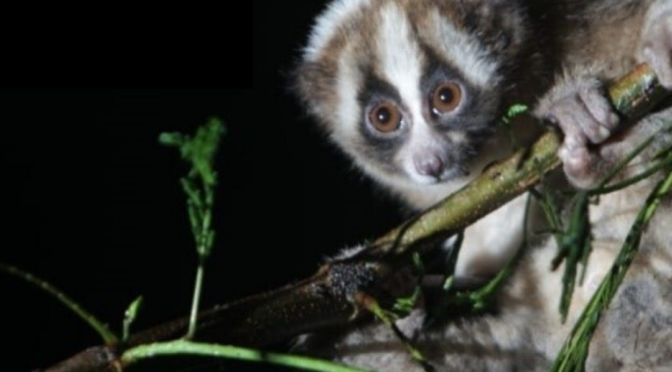The existence of the covid-19 pandemic that occurred in every corner of the world keeps everyone in their homes. The outbreak of the SARS Cov-2 virus as a cause of the pandemic is also due to human activities that exploit wildlife. One of them is the use of wildlife as pets. Usually these wild animals can be obtained illegally by buying it from traders at animal markets or animal trading sites on social media.

People who keep wild animals make efforts to say that by keeping them as pets, they are protecting animals from the illegal trade, saving them from habitat destruction, or even helping to breed endangered animals as an excuse for them to be able to keep wild animals in their homes. This is not the right reason, because wild animals have their respective roles as balancing ecosystems. Like for example, lorises are pollinators in nature, but baby lorises are often taken as pets because of their “cute” and “adorable” behaviour. Have you ever thought about how these animals might end up on animal trafficking sites? How these animals are taken from their mothers? What kind of animal welfare does an animal have if, since infancy, they have been separated from their parents. It is sad to think about what their fate will be like before they become pets. Animal welfare is a physical and psychological state that is healthy and prosperous for animals that interact with humans; therefore, all aspects of these animals’ lives must be considered.
Animal welfare has five principles of freedom which cover many aspects such as nutrition, environment, health, behavior and mental health; this is known as the “Five Freedom Principle”. This principle of freedom consists of freedom from thirst, hunger and malnutrition by providing access to fresh drinking water and continuous food to maintain health and strength; freedom from physical discomfort and hot weather by providing an appropriate environment including a shelter and a comfortable place to rest; freedom from pain, injury and disease through prevention or rapid diagnosis and routine care; freedom to express normal behaviour by providing ample space, suitable and group facilities and freedom from fear and stress by securing conditions in the cage and caring for them to avoid mental suffering. Many pets do not have access to these five principles of freedom. So not only are wild animals taken from their homes and put in an unfamiliar environment, but the care they receive while they’re there is often sub-par.
If we as humans want to “care for wild animals”, by protecting them from forest destruction and the illegal trade, keeping them at home is not the right thing to do. Animals are living creatures that have the right to be able to live wild and free. The more appropriate action to take is to maintain their habitat to be sustainable so that wildlife can remain wild and free for many years to come.

